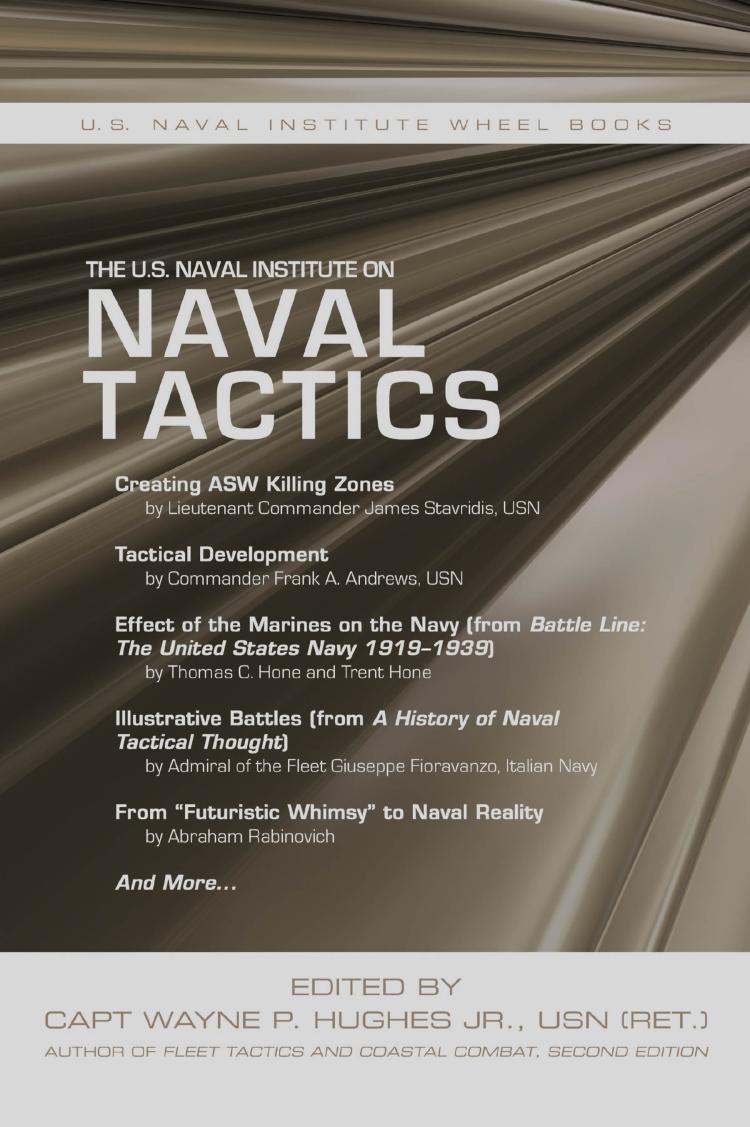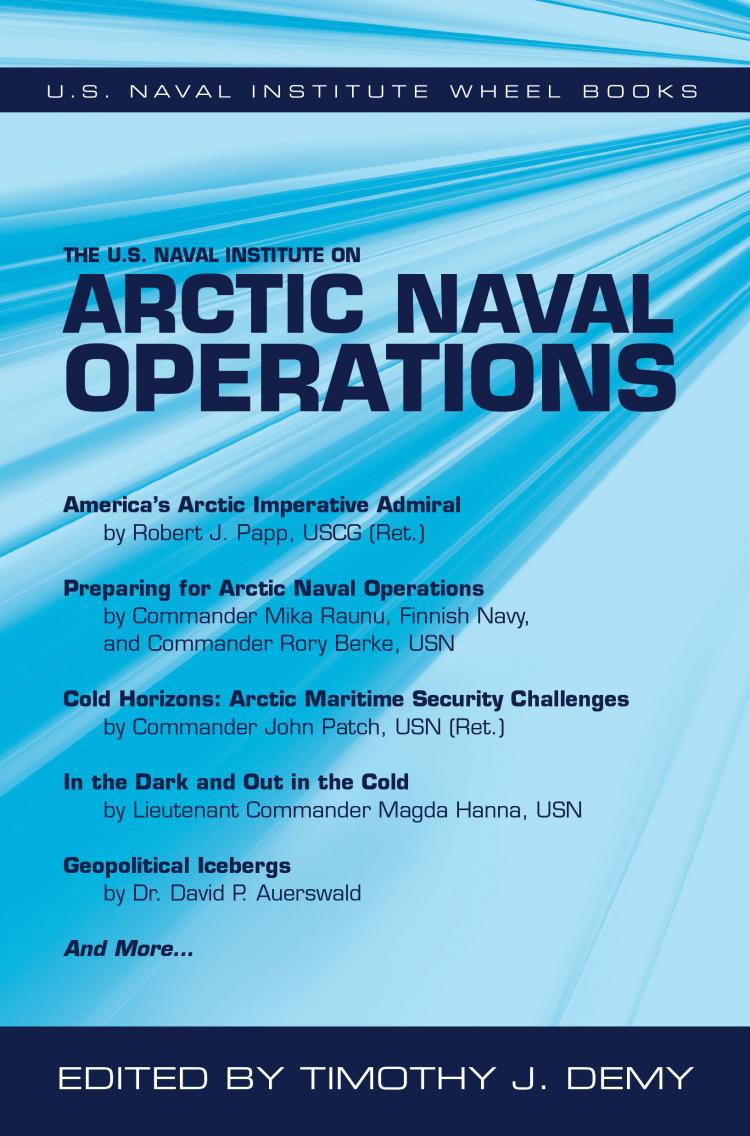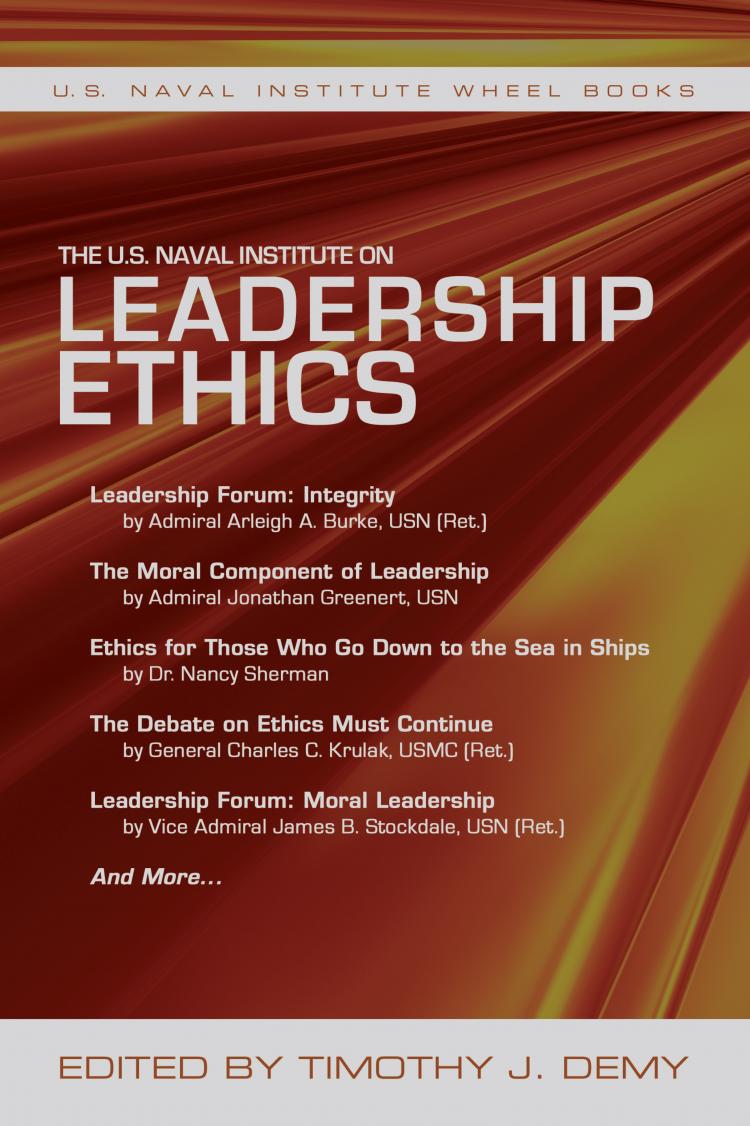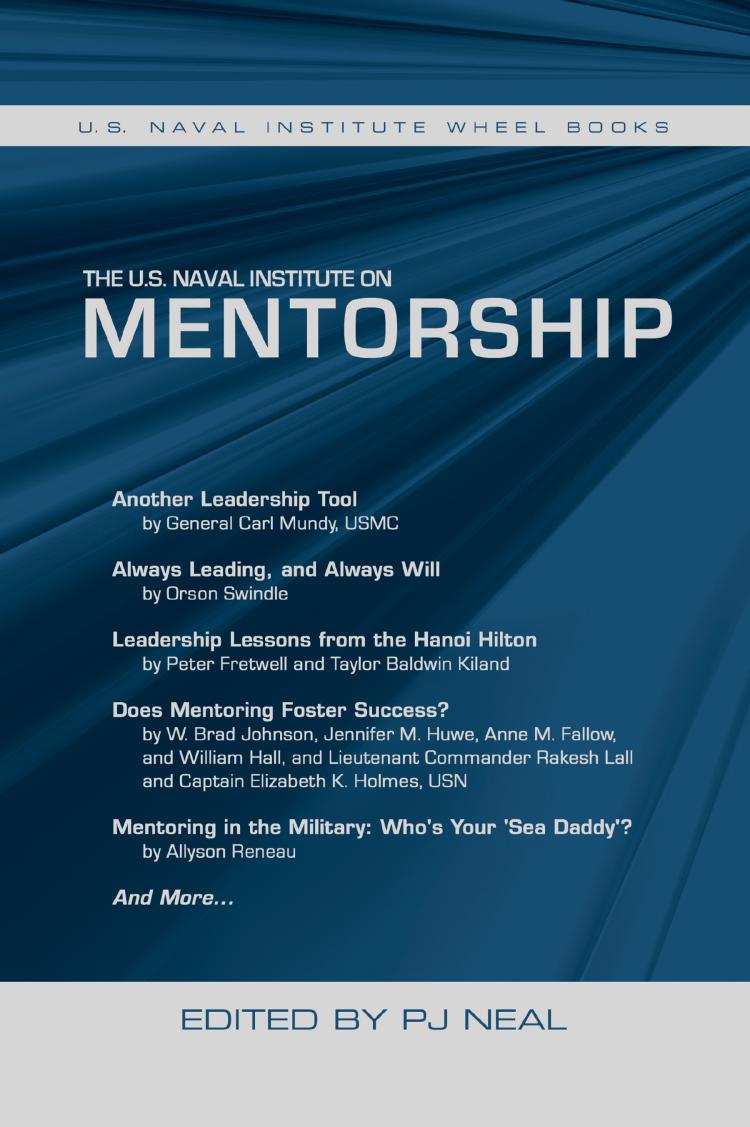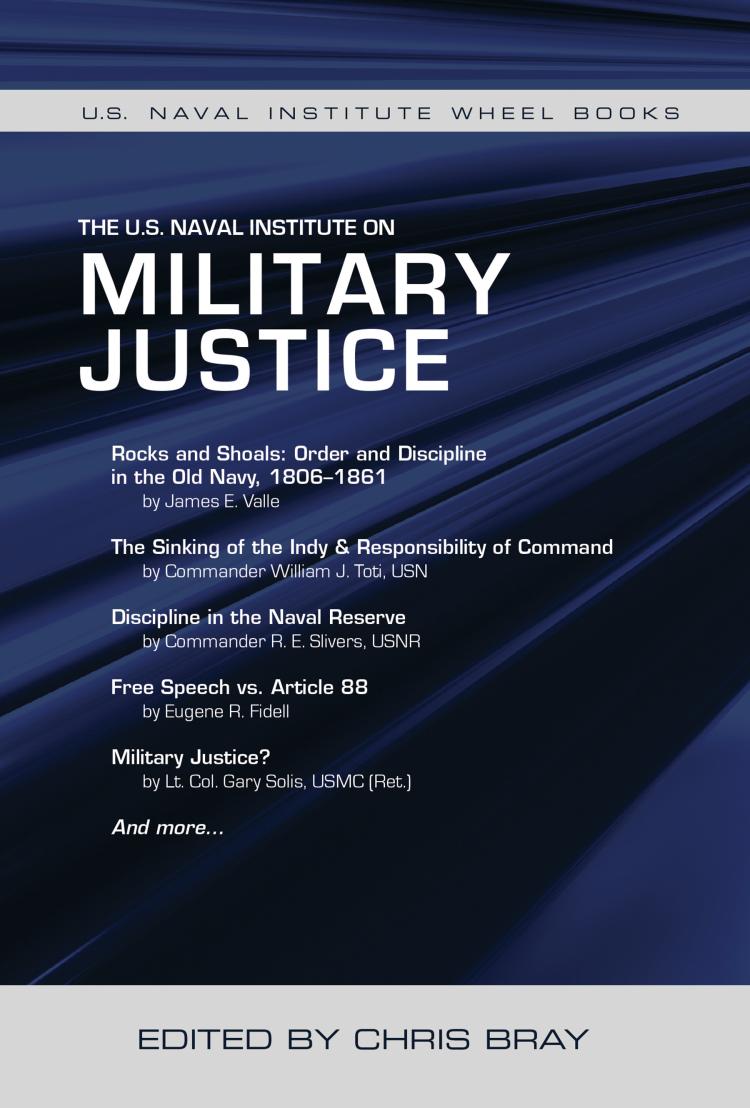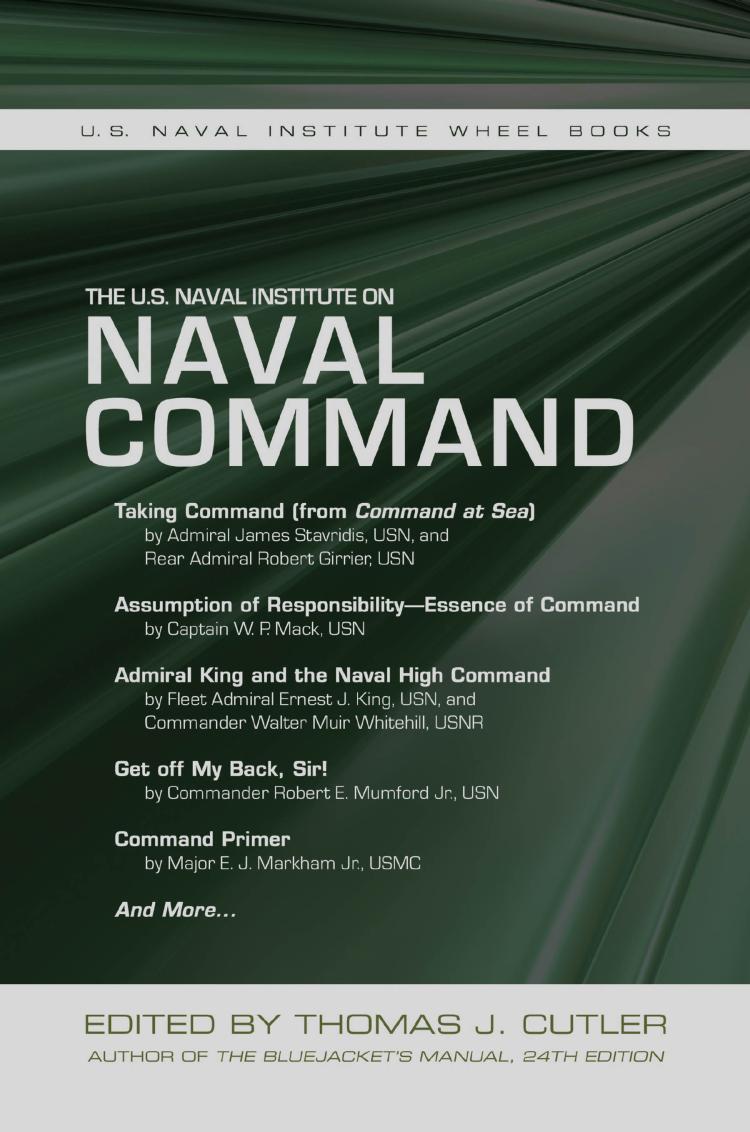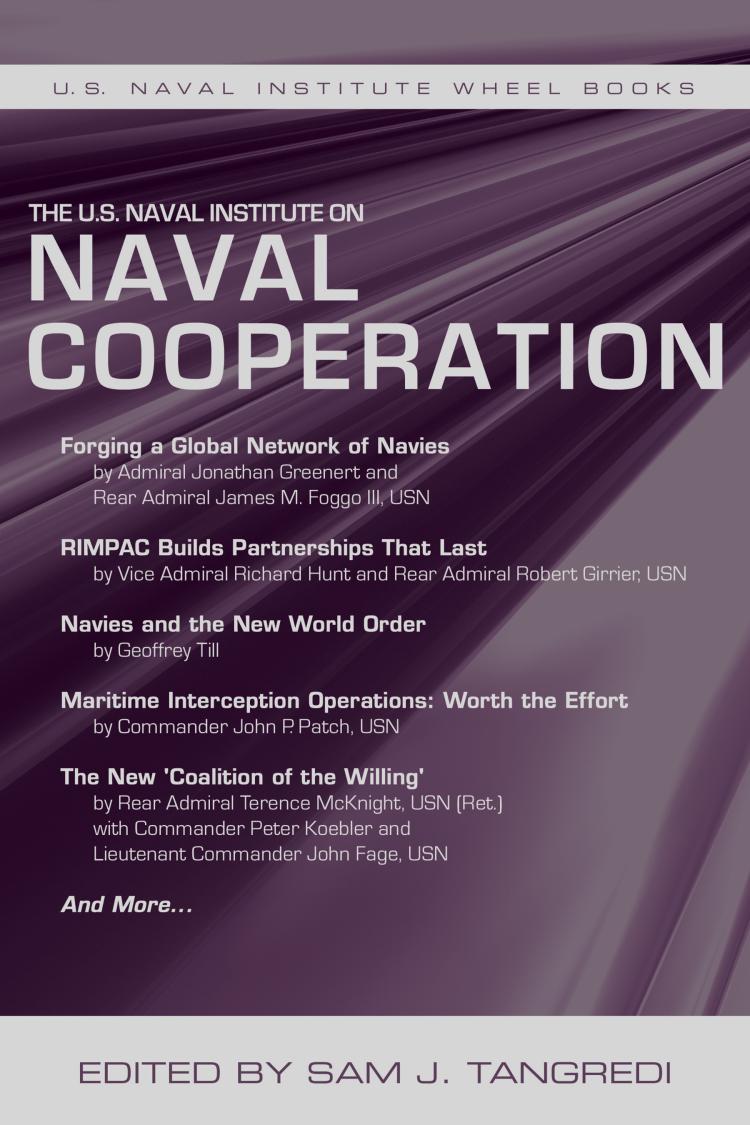The U.S. Naval Institute on Naval Tactics
- Subject: eBook Editions | Professional Reading for the Military | U.S. Navy | Strategy
- Format:
Softcover
- Pages:
192pages
- Published:
January 15, 2015
- ISBN-10:
1612518052
- ISBN-13:
9781612518053
- Product Dimensions:
8.25 × 5.5 × 1 in
- Product Weight:
9 oz
Overview
In that same tradition, the new Naval Institute Wheel Books will provide supplemental information, pragmatic advice, and cogent analysis on topics important to all naval professionals. Drawn from the U.S. Naval Institute’s vast archives, the series will combine articles from the Institute’s flagship publication Proceedings, selections from the oral history collection and from Naval Institute Press books to create uniqueguides on a wide array of fundamental professional subjects.
Naval tactics were described by Vice Adm. A.K. Cebrowski, a brilliant thinker on the subject of naval warfare, as “the sum of the art and science of the actual application of combat power.” Renowned naval tactician Capt. Wayne Hughes called the study of naval tactics as striving “to bring whatever order and understanding is possible out of the chaos of battle.” With those words of wisdom serving as the “commander’s intent,” this collection sheds a bright light on this sometimes dark and mysterious but unquestionably essential realm, illuminating the principles and concepts of tactics that serve the warrior at the most critical moments.
About the Author
Editorial Reviews
"The book's value lies in its highly readable text and the exposure it provides to the reader for subsequent study. It is recommended for the military historian and serving naval officer, but parts, especially those focused on logistics and training, speak to anybody involved in the Canadian military industrial complex." —Starshell




